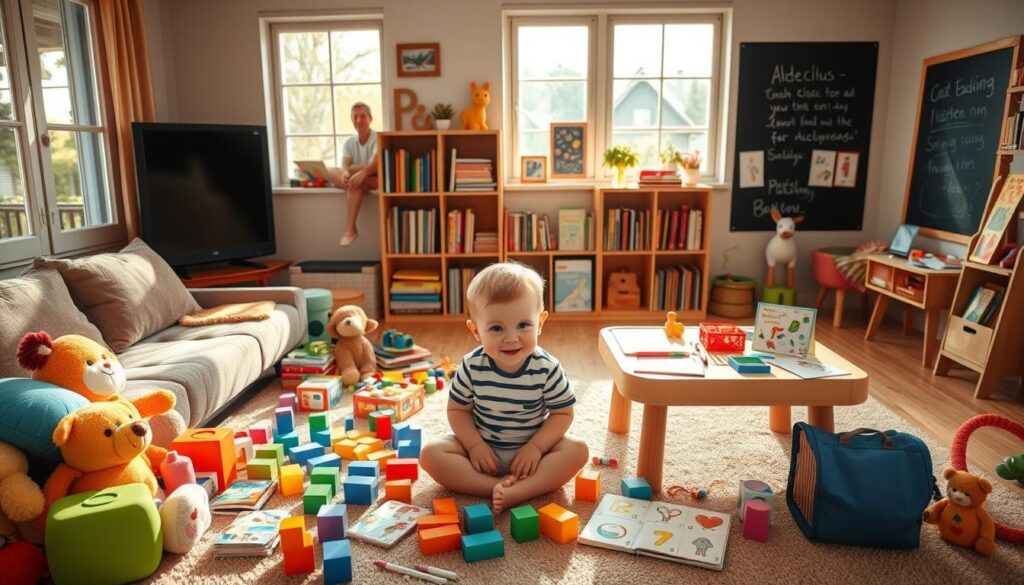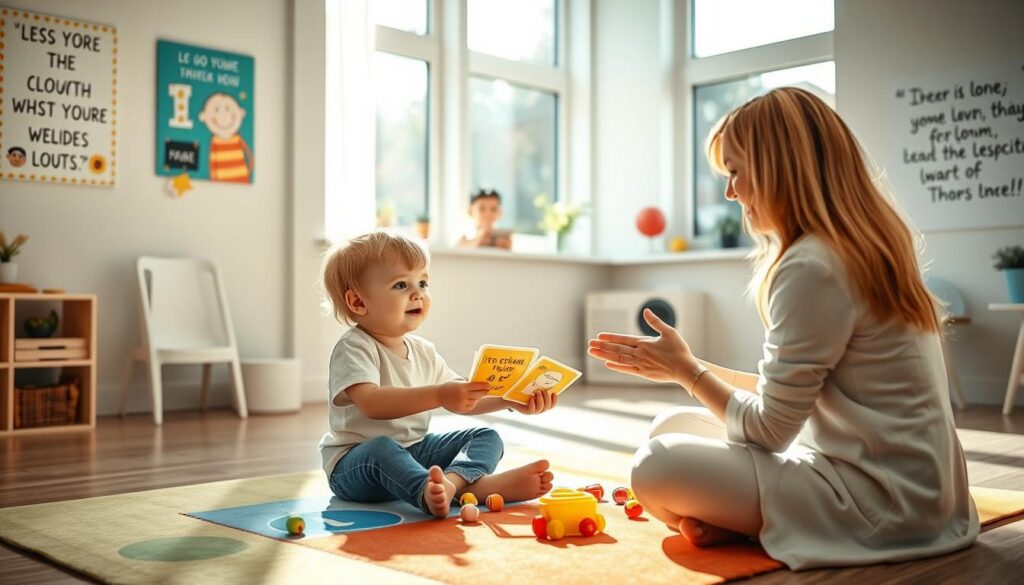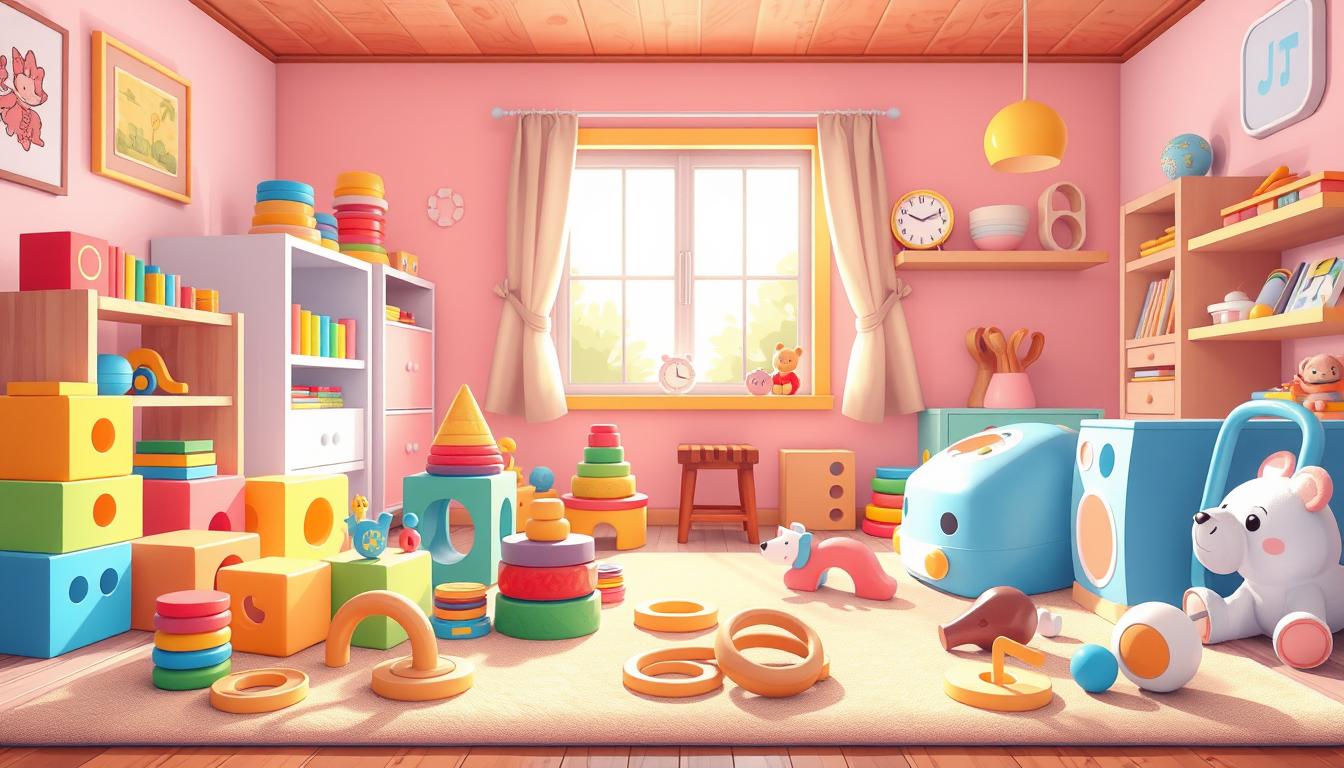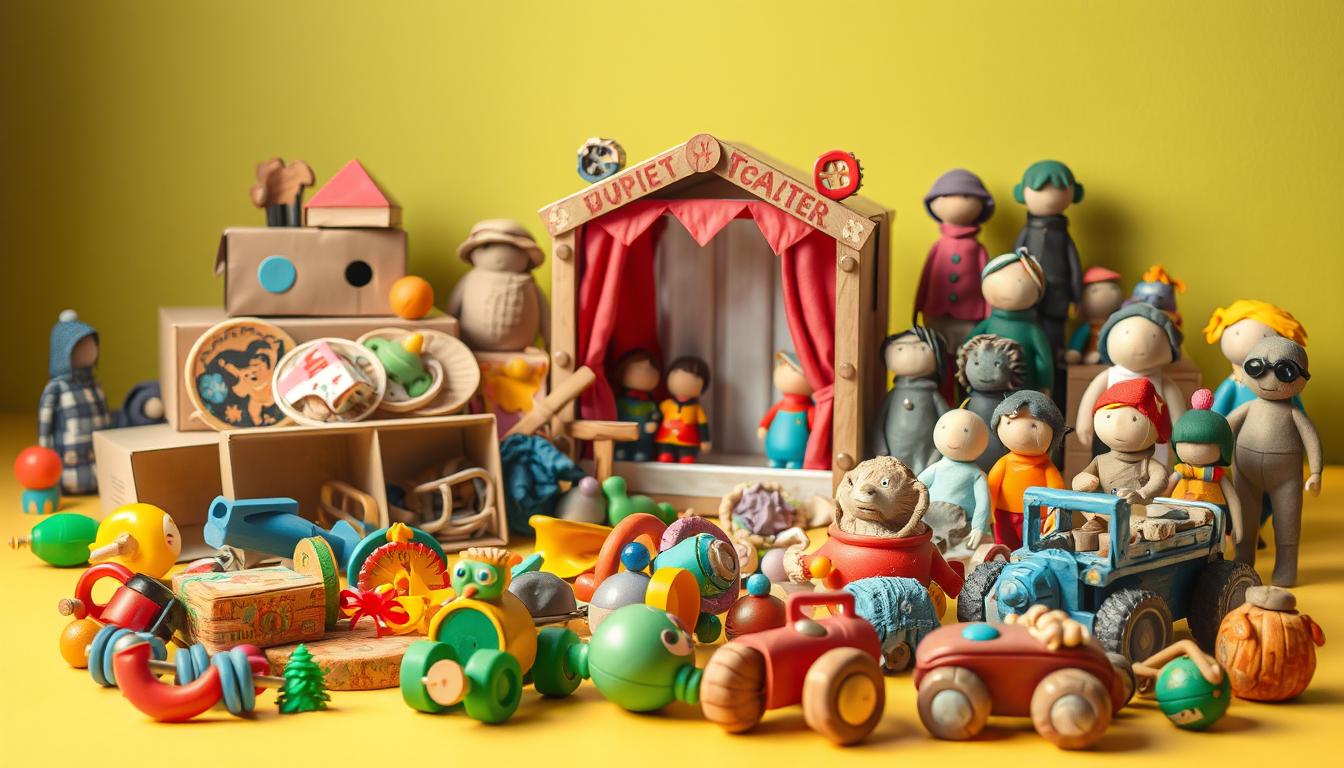Speech Development Made Fun: Easy Activities for Kids 3-6 Years

Helping kids grow means focusing on their speech development. Activities for kids aged 3–6 can really help. As a parent, making speech fun is key. Early and fun activities can make a big difference in their language skills.
Simple things like reading, singing, and talking can help a lot. These actions improve vocabulary, grammar, and how they sound. By focusing on speech, you help your child succeed in the future.
Key Takeaways
- Speech development for children is a critical aspect of their overall growth
- Engaging in the best speech development activities for kids (3–6 years) can have a lasting impact on their language abilities
- Starting early and incorporating activities that promote communication skills is essential
- Activities such as reading, singing, and conversations can help develop key language skills
- Making speech development a fun and engaging experience can help your child build a strong foundation for future success
- Speech development activities can be incorporated into daily routines, making it easy to prioritize your child’s language skills
Understanding Speech Development Milestones in Young Children
Children grow and hit speech milestones as they get older. It’s key for parents and caregivers to know these milestones. This helps spot any issues early and offer the right help.
Studies show kids reach certain speech goals at specific times. Games that help with language can boost their words and how they say them.
At different ages, kids should know certain things about language. To help, parents can play games that teach new words, grammar, and how to say things right. This helps kids learn to talk well, which is important for life.
- Using simple sentences to communicate
- Identifying and naming basic shapes and colors
- Following simple instructions
These goals are key for kids to talk well. Knowing how to help kids with speech lets parents support them to reach these goals.
Engaging Indoor Speech Activities to Practice at Home
Studies show that fun activities can really help kids talk better. Indoor games can be great for this. Reading and telling stories are good for all kinds of learners.
Singing songs and rhymes can help kids speak clearer. Using things around the house can make learning fun. For example, talking about food at dinner can help with words.
Here are some ideas for indoor games:
- Creating a treasure hunt with clues that require children to follow instructions and use problem-solving skills
- Playing dress-up and using different voices and characters to practice communication skills
- Having a dance party and using music to practice rhythm and timing
Adding these games to your day can help your child talk better. Using toys and imagination can make these activities more fun for toddlers.

Best Speech Development Activities for Kids (3-6 Years): Expert-Recommended Techniques
Early childhood speech therapy is key for kids’ language skills. Studies show it’s vital for young children’s speech growth. Activities like interactive reading and storytelling are great for their language.
Some top activities for kids’ speech development include:
- Interactive reading and storytelling exercises to enhance vocabulary and comprehension skills
- Sound recognition and pronunciation games to develop phonological awareness
- Conversation-building activities to foster communication and social skills
- Musical activities for speech enhancement, which can help children develop rhythm and timing
Parents and caregivers can help kids with these activities. It’s important to make sure each child gets what they need. This way, every child can do well.

Following expert tips and knowing speech milestones helps kids grow. Regular activities make a big difference. They help kids become good at talking and learning.
Incorporating Speech Development into Daily Routines
Studies show that adding speech development to daily life helps kids a lot. Parents can support their kids by making speech a big part of their day. This means doing things like reading, singing, and talking during meals.
Helping kids talk well is key for their growth. There are many ways to boost their language skills. Here are some ideas:
- Reading books with simple and complex storylines to enhance vocabulary and comprehension
- Engaging in role-playing activities to practice conversation skills
- Singing songs and reciting nursery rhymes to develop phonological awareness
By doing these things, parents can help their kids talk better. This is good for their future and success.
Conclusion: Supporting Your Child’s Communication Journey
Helping a child grow their speech and language is very important. It helps them grow and succeed in life. By doing fun activities together, you can help a lot.
These activities, like reading and games, make learning fun. They help kids get better at talking and listening. Each activity is made to be fun and good for their brains.
Every child learns to talk and listen in their own way. So, it’s important to be patient and watch how they do. Celebrate when they reach new milestones.
If you worry about their talking, talk to a professional. A supportive home and helping them learn to talk is key. This way, your child will have a great start in talking and listening.
FAQ
What are the best speech development activities for kids aged 3-6 years?
How can I incorporate speech development into my child’s daily routine?
What are the typical speech development milestones for young children?
How can I help improve my child’s speech skills?
What are some fun indoor activities to practice speech development at home?
RELATED POSTS
View all


